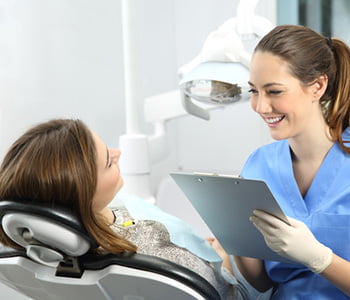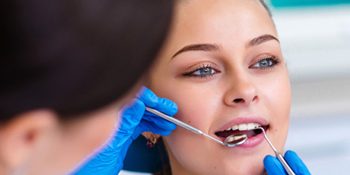Congratulations! The hard part is done. But now that your dental surgery is complete, aftercare tips for a speedy recovery are probably top of your mind. After all, you want to heal in the fastest way possible.
Below, Dr. Suril Amin and the team at Sensational Smiles discuss oral surgery recovery tips to keep you healthy and feeling like your vibrant self in no time.
Anti-Inflammatories
These drugs help to ease discomfort, swelling, and inflammation following surgery. They are available over the counter, and the best ones are usually paracetamol and ibuprofen.
Patients commonly tell us, “I don’t like taking pills.” If you identify with this statement, it’s important to consider “why” you’re wary about medications. The common reasons patients are hesitant to take the drugs that help with recovery from wisdom tooth extraction (and other procedures) include:
- Patients think they can tolerate the pain. This may be true; however, the drugs help not only with discomfort, but they can also reduce the inflammation and swelling that slow the healing process. So, by taking the pills, you can help to improve your recovery and healing time.
- They think, “If something is wrong, I want to know about it. By taking painkillers, it will mask a serious issue.” The truth is, if something is wrong, painkillers are not strong enough to mask the pain. Also, as these medications wear off, you’ll have a good opportunity to “experience” those symptoms. So, you remain in control throughout the recovery process.
- Patients express concern that one day the painkillers won’t work should they keep taking them. While it’s true you can build up a tolerance to benzodiazepines and opioids, this concern doesn’t apply to paracetamol or ibuprofen. Not all drugs work the same way. You don’t build a tolerance to the ones prescribed by Dr. Amin, nor do you become dependent on them, either. Furthermore, a short 1- to 2-week course after surgery isn’t going to cause you to become dependent on them. We ask you, “Have you ever heard of anyone getting hooked on paracetamol?”
Ice Packs
It’s essential to do this right away following surgery; the quicker, the better. Any type of icing will do – from professional medical cold packs to a bag of frozen peas. Gently hold the pack to the side of your face where the surgery was performed as long as is practical. Cooling reduces inflammation and swelling, which aids in healing.
Arnica
A toxic herb, when highly diluted, arnica is widely used as a homeopathic medicine. But it’s not just folk or “alternative” healers that swear by it; many top surgeons recommend using arnica prior to surgery and in the week following. It can affect blood clotting. While scientific evidence doesn’t confirm healing is definitely better with the use of arnica, it is an option Sensational Smiles considers and you should consider, too.
Turmeric

A spice well-known to curry enthusiasts, turmeric is yet another powerful anti-inflammatory and household remedy. It works by blocking NF-kB, which is a molecule that activates genes associated with inflammation.
Rest
Enjoy quality sleep following your surgery. If you’re working as enthusiastically as ever, stressed-out, and not sleeping well, this frenetic lifestyle will adversely affect your recovery and recovery time following tooth extraction or other oral surgeries. Be sure to plan your procedure accordingly. That way, you have plenty of opportunities to rest afterward.
The bigger the surgery, the more time you will need. Our patients routinely take a week off work following very big cases (such as “same-day teeth”). As healthy as exercise is, strenuous physical activity after surgery can elevate blood pressure and cause bleeding, unnecessary swelling, and inflammation.
Vitamins
Take your vitamins! These substances are vitally important for healing. So, you will need them to keep your body nourished. We recommend multivitamin packs.
Protein
Mind this essential macronutrient. You can get a good dose of the protein, which is packed with healing properties, from foods that are also easy to consume following oral surgery; for instance, oats, yoghurt, milk, cottage cheese, lentils, and quinoa.
Diabetes
Diabetic? Ensure your blood glucose levels are within the normal range. Countless studies have substantiated the association between poorly controlled diabetes and poor healing. Make sure that your blood glucose levels are controlled as surgery nears, no later than the week ahead of the day of your procedure.
Let the wound be
Fiddling with the surgical site can disrupt the wounds, which adversely affects healing. Keep your tongue away from the wounded site and be very careful when chewing food or cleaning your teeth and gums.
[call]
Avoid Smoking and Alcohol
Smoking has a substantial detrimental effect on healing. Studies show that the longer you abstain from smoking before or after surgery, the better your chances of successful and speedy healing.

